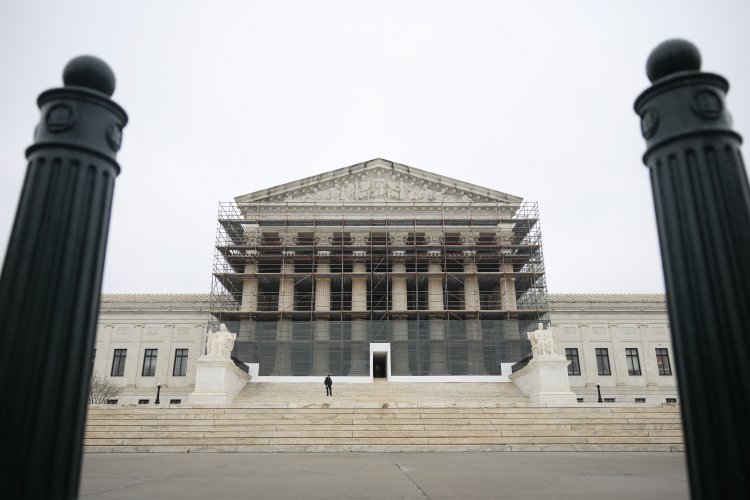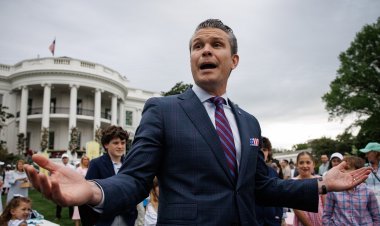Supreme Court seems to dismiss conservative claims about Obamacare provision
The availability of preventive care services for millions is at a critical juncture.

Interestingly, it was the Trump administration defending the health law that President Trump has long criticized.
During an hour and a half of detailed discussions, the justices leaned toward the position of the administration, suggesting that the constitutional basis for Obamacare's coverage mandates lies in the composition of the task force that recommends them, which consists of members who can be dismissed by the health secretary at any time.
However, a favorable ruling for Obamacare supporters may not translate into a sweeping victory, as the current administration would retain substantial control over those requirements moving forward. The Supreme Court's decision, expected by June, could potentially threaten or even eliminate many preventive care mandates established since the inception of Obamacare, allowing insurance companies to impose co-pays on millions.
The Trump administration’s unexpected defense of the Affordable Care Act, which the president has sought to repeal, may stem partly from a desire to enhance the authority of Trump's Cabinet and limit the number of officials requiring Senate confirmation.
During Monday’s arguments, Deputy Solicitor General Hashim Mooppan asserted multiple times that involving the Senate in such appointments would be unconstitutional.
Justice Elena Kagan observed that the Court has shown a tendency in recent years to place agencies under greater presidential oversight, rather than treating them as entirely independent, which was the argument made by those challenging the Obamacare provision.
“We don't go around just creating independent agencies; more often we destroy independent agencies,” she stated. “The idea that we would take a statute which doesn't set up an independent agency and declare it one strikes me as pretty inconsistent with everything that we've done in this area.”
In the backdrop of the arguments were additional disputes that the Supreme Court may consider regarding Trump’s authority to remove officials from agencies Congress has attempted to insulate from presidential influence, such as the Federal Trade Commission and the National Labor Relations Board. The Court has been asked to rule on these matters urgently but has not yet added them to its primary docket.
Notably, Jonathan Mitchell, who secured a unanimous Supreme Court ruling last year that ensured Trump remained on the 2024 ballot nationwide, represented the conservative Texas employers contesting the coverage requirements.
Mitchell contended that the Affordable Care Act's language, which guarantees the independence of the preventive care panel members “to the extent practicable,” indicates that their power necessitates Senate confirmation.
In response, Mooppan argued that Health Secretary Robert F. Kennedy Jr. has “abundant means” to influence the panel's recommendations by removing panel members or delaying their recommendations until new members are appointed.
Several justices raised concerns about the true independence of task force members if they can be dismissed for noncompliance.
“It’s an odd definition of independence, I suppose,” remarked Justice Brett Kavanaugh.
Justice Samuel Alito agreed, describing the government’s interpretation as “incredibly strained,” jokingly asking Mooppan if he views himself as independent from his boss, Trump, which prompted laughter in the courtroom.
“If somebody's removable at will, that person is not, in any ordinary sense of the term, independent,” Alito clarified.
On the other hand, Kavanaugh and several justices adopted a more lenient interpretation of the term “independent,” with Justice Sonia Sotomayor comparing the task force’s dynamic with Kennedy to her relationship with her law clerks.
“My law clerks — I ask them to give me their independent judgment of what an answer should be. And they'll tell you there's some times — a lot of times — I don't accept it, and I certainly have the power to fire them, and they still do it,” Sotomayor stated.
However, Mitchell argued that the Trump administration’s assertion of Kennedy’s power to effectively veto coverage requirements would render the Obamacare law “unrecognizable” as originally envisioned.
He also highlighted contradictions in two aspects of the 2010 landmark health insurance law, one stating that the volunteer experts on the U.S. Preventive Services Task Force advising HHS on coverage must be “independent,” while the other implies that the health secretary has the authority to appoint or remove members of that task force and can stall recommendations.
Mooppan attempted to reconcile these provisions, emphasizing that Kennedy has the discretion to instruct HHS’s preventive care task force to evaluate specific services or medications, remove noncompliant members, or reject their recommendations altogether. Under questioning from justices, he likened the task force's relationship to Kennedy to the interplay between the two chambers of Congress.
“The Senate can’t force the House to pass a bill, but if the Senate doesn’t also agree with the bill, it doesn’t become a law,” Mooppan explained. “We agree that the secretary cannot tell the task force to make a given recommendation. If the task force doesn’t want to make a recommendation, it doesn’t have to make a recommendation. Our point is simply that if the task force does make a recommendation, the secretary can block it.”
Trump's unexpected defense of the law came as a surprise to many, particularly since in February, his administration adopted the Biden administration's stance on it. While President Joe Biden’s Justice Department argued that discarding the coverage mandates would negatively impact public health, Trump’s attorneys concentrated solely on Kennedy’s oversight authority.
This line of reasoning has raised concerns among progressive health advocates who filed amicus briefs in the case, especially regarding Kennedy’s views on vaccines and preventive health measures that diverge from the consensus in the medical community, as well as his intentions to revise other HHS advisory committees.
Nevertheless, public health advocates maintain that they would prefer the U.S. Preventive Services Task Force persist under Kennedy’s leadership than be undermined or nullified by the court.
“We are going to see an increase in preventable illness and death if we don't continue access to this no-cost preventive care,” said Kathy Hempstead, a senior policy officer with the Robert Wood Johnson Foundation. “Pre-ACA, about 10 percent of men and women, and about 30 percent of low-income men and women reported that they postponed or skipped preventive care because of cost. … So this seems like a narrow little point of law, but there are enormous consequences."
Allen M Lee for TROIB News












